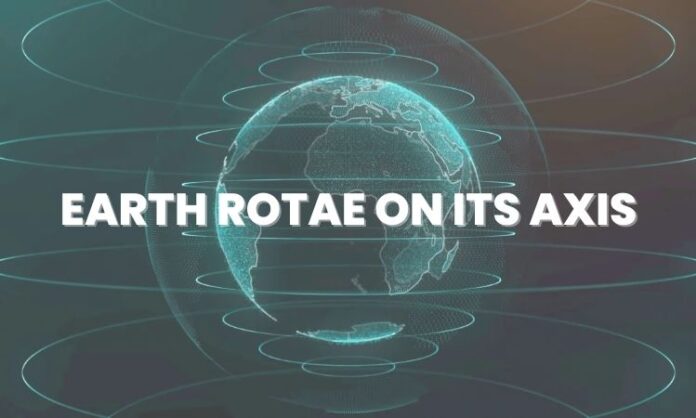Discover the incredible speed at which the Earth rotates on its axis. Get an in-depth analysis of this fascinating phenomenon and explore how much faster or slower it could be. The Earth rotates incredibly fast on its axis as it orbits around the Sun. With an average speed of 1,000 miles per hour (1,609 kilometers per hour), the Earth completes one rotation in just 24 hours. But why and how does this happen? Let’s take a closer look to find out.
To read more about interesting facts click here:
Analyzing the Earth’s Axial Rotation.
By analyzing data from various sources, astronomers have found out that the Earth’s axial rotation is determined by a combination of several factors. A few of the most influential is its mass, its distance from the Sun, gravity, and its large-scale internal motions. Further analysis also indicates that the speed at which the Earth rotates has slowly decreased over time due to both natural processes and external input from space.

Understanding How Fast earth spin on its axis:
The Earth rotates on its axis once every 24 hours — making one full rotation in a day. This means that the Earth moves at an incredible speed of roughly 1,040 miles per hour at the equator. Interestingly enough, if you were standing at the North or South Pole, you’d hardly be moving since the axis of rotation is located right between both poles. That said, understanding how fast the Earth spins can help us better understand various phenomena such as seasonal weather patterns and astronomical positions.
Calculating and Measuring the Current Speed of Rotation.
Although the Earth’s rotational speed is relatively constant, measuring it is a bit trickier than you’d think. In order to measure the Earth’s speed of rotation, astronomers use a method called “precession, which requires tracking the relative positioning of stars and other celestial objects throughout the year. These calculations allow us to determine if the Earth has slowed down or sped up over time.
Exploring Factors that Could Potentially Influence the Speed at Which the Earth Rotates on its Axis:
Scientists are studying the potential effects of certain natural events, such as asteroid collisions, volcanic eruptions, and deep ocean currents, that may have a significant influence on the speed at which the Earth rotates on its axis. Although there is no clear evidence yet to prove these theories, ongoing research by scientists is uncovering more clues about potential impacts on the planet’s rotational speed.
The effects of such events could be far-reaching. Asteroid collisions, for example, could increase or decrease the planet’s rotational speed, by transferring energy from the impact directly to Earth’s core. Similarly, volcanic eruptions could shift Earth’s mass toward its poles, making the planet slower and changing its path of rotation around its axis. On the other hand, deep ocean currents can generate powerful gravitational forces that might cause a slight acceleration. The present average speed at which Earth rotates is once every 24 hours at 1,040 mph (1,670 km/h). In order to more accurately understand how natural occurrences may be affecting this rate of rotation and the overall movement of the planet through space in the long-term future, researchers still have many questions to answer.
Investigating Whether We Could Change the Speed at Which the Earth Rotates on its Axis:
Many questions remain about the possible effects of natural events on the rotational speed of the Earth. Scientists are currently exploring the potential for human intervention, e.g. by using satellites or other technology, to alter the Earth’s rotation if needed. It’s unclear at this time what methods would be successful in slowing or speeding up the planet’s rotation and whether they would be safe to do so. Further research is necessary before any significant action can be taken in this regard.





